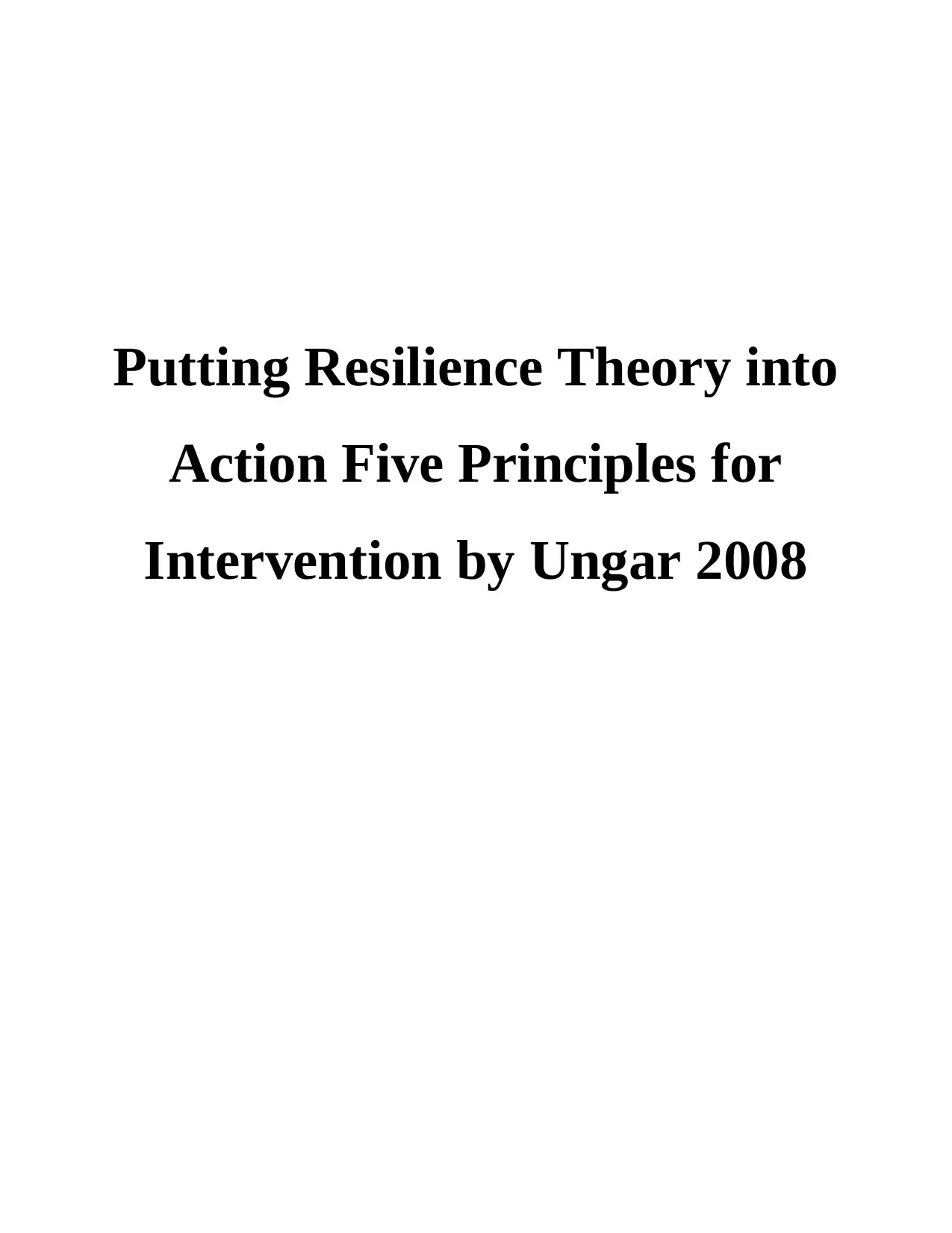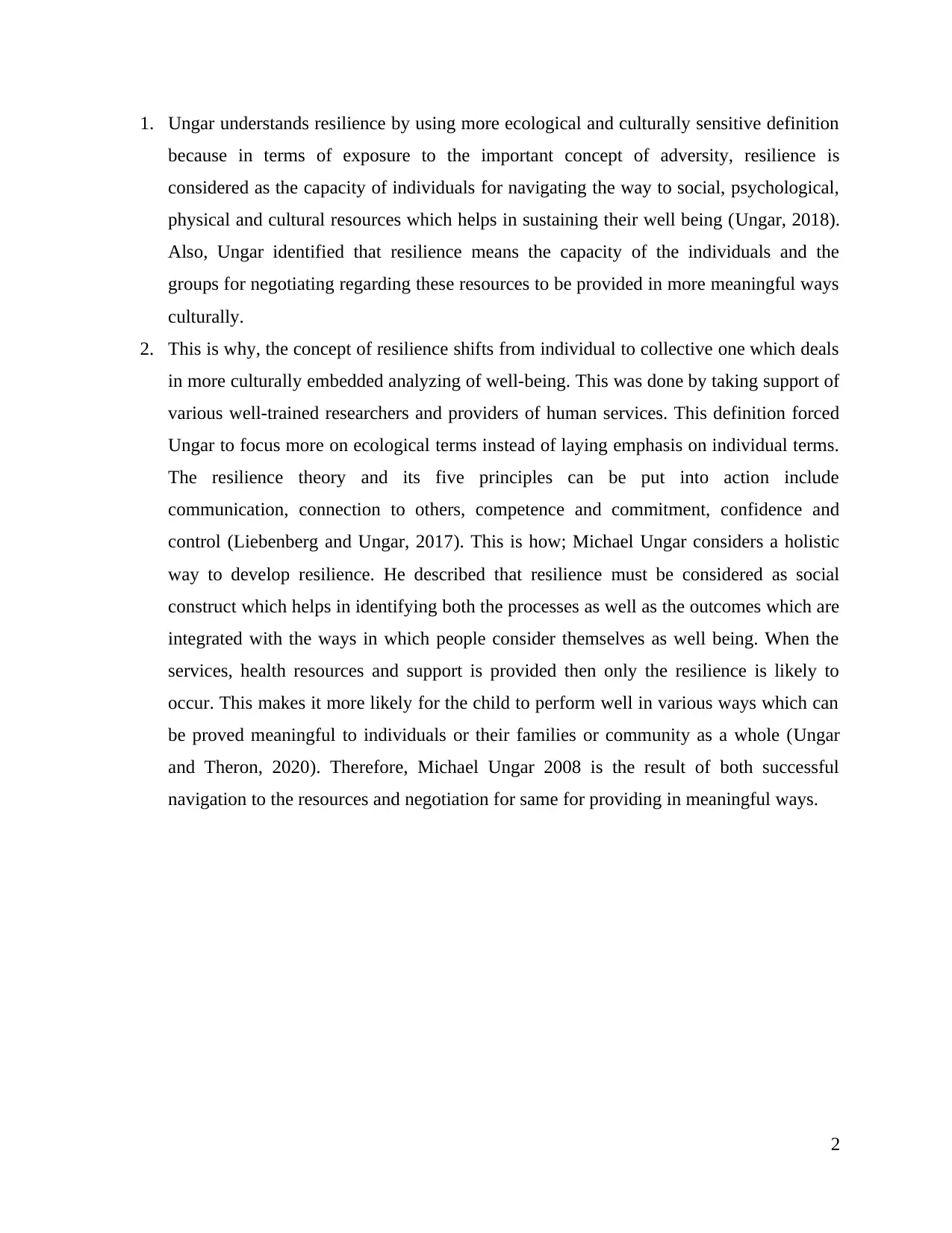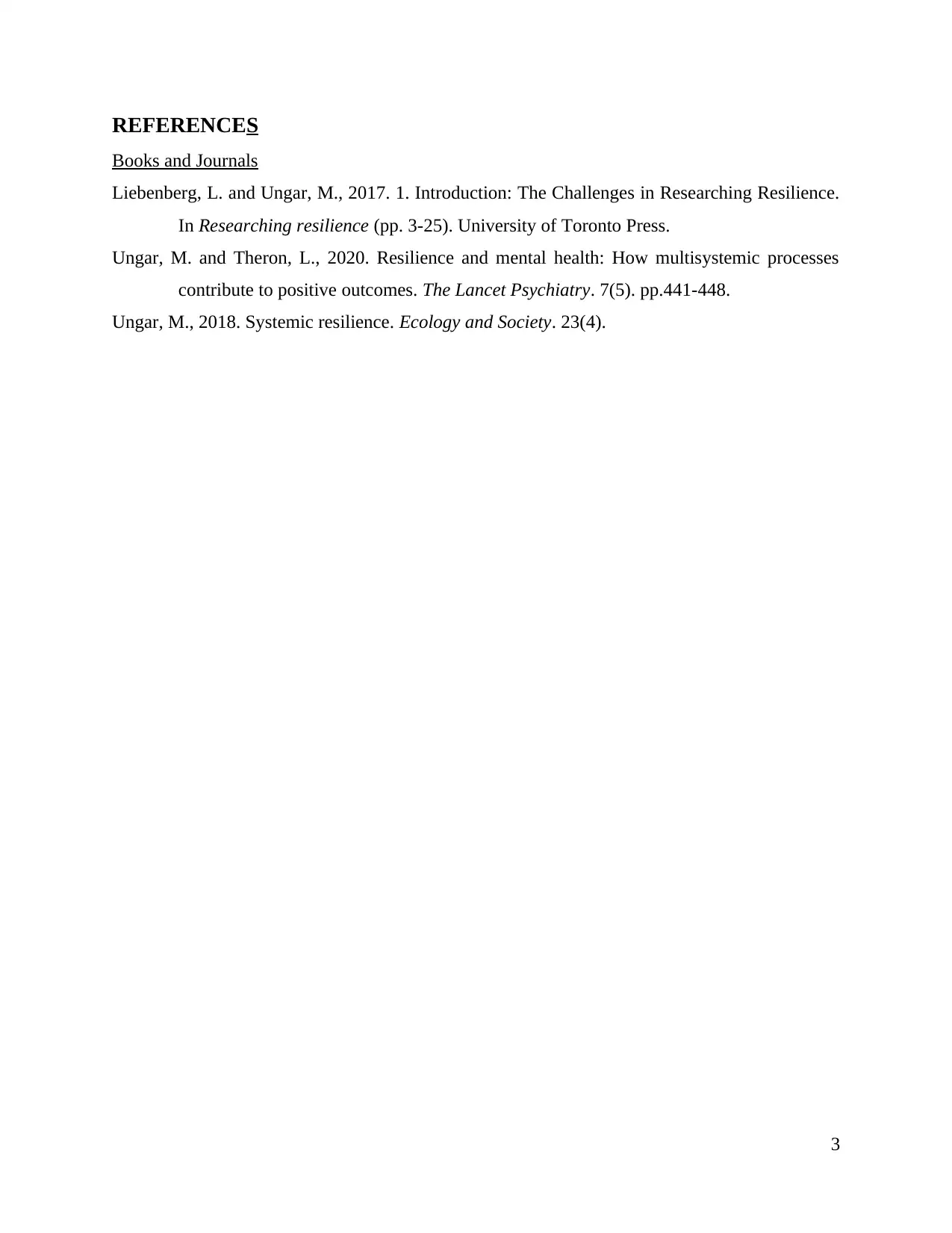Ungar's Resilience Theory: Principles for Intervention and Well-being
VerifiedAdded on 2022/11/29
|3
|418
|98
Report
AI Summary
This report delves into Michael Ungar's Resilience Theory, emphasizing its ecological and culturally sensitive perspective. It highlights the importance of understanding resilience as the capacity of individuals to navigate social, psychological, and cultural resources to sustain well-being. The report focuses on the five key principles for intervention: communication, connection to others, competence and commitment, confidence, and control. It emphasizes the shift from an individual to a collective approach, analyzing well-being within cultural contexts and the role of support systems in fostering resilience. Ungar's theory underscores the significance of accessing resources and negotiating for them in meaningful ways, leading to positive outcomes for individuals, families, and communities. The report references relevant literature, including works by Liebenberg and Ungar (2017) and Ungar and Theron (2020).
1 out of 3






![[object Object]](/_next/static/media/star-bottom.7253800d.svg)